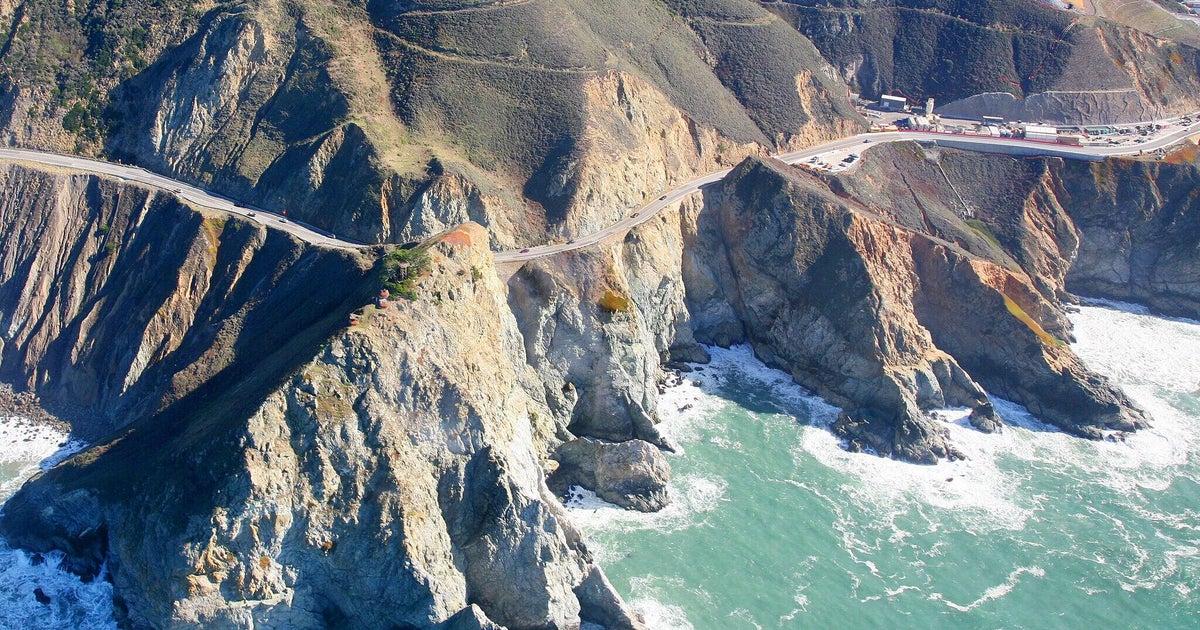Scientists At NSU's Guy Harvey Ocean Foundation Use Tracking Tags To Learn More About Whale Sharks
FORT LAUDERDALE (CBSMiami) - Over the past decade, marine biologists have been tracking sharks off Florida's coast using special tracking tags, which has led to great insight into migration patterns and habitats, but not so much with the whale shark.
The size of a school bus, whale sharks are hard to get close to and hard to track, until now.
Scientists are now tagging them and surprising results are coming in.
For Executive Director of the Guy Harvey Ocean Foundation at Nova Southeastern University, Greg Jacoski, studying whale sharks had been difficult due to their gigantic size.
"The average size is 30 to 40 feet. They think they can grow up to 60 to 70 feet. But those reports are few and far between," said Jacoski. "For an animal the size of these whale sharks it is pretty impossible to get them next to the boat so you can work with them."
Scientist typically use special tags to track sharks.
It typically involves catching one, bringing it on a boat, attaching a special satellite tracking device and then following the data for a year or more to see where the sharks go.
But then they met Rafael de la Parra. A marine biologist in Mexico who does the unthinkable.
He gets in the water, swims with the shark and attaches the tracking tags.
"I was skeptical going into it because even though these animals are slow moving. They are still big and they have big tails," said Jacoski. "A couple of flicks of their tail and they are off on their own. So they are very tough to keep up with."
A whale shark on average moves at three miles an hour.
Not that fast, but compared to humans that is the pace most Olympic swimmers are moving at.
A year ago, three whale sharks were tagged off the coast of the Yucatan Peninsula.
The tracking tags showed one of the sharks, 'Rio Lady,' took a trip to South America.
'Milo' went to Bermuda.
The third one stayed in the Gulf of Mexico.
But nearly a year to the day when they tagged the animals, all three came back to the place they were tagged.
"Seeing them disperse was pretty unique because they all had different strategies for going away from this feeding aggregation," said Jacoski. "But in order to see them back here shows that this area is significant not just for the local shark population, but for whale sharks across the Atlantic. Because they are coming from such a spread area all to this one location."
This family reunion, that scientist believe to happen every year at the same time and place, indicates the sharks somehow keep a calendar and a map.
However, scientists are not sure how they do it.
"Could be some underwater topography. Clues in the water. Water chemistry that they follow that they know when and where to go in order to have this feast that they are going to have," Jacoski said.
Whale sharks are an endangered species because their fins are highly sought after. Most countries have banned hunting them.
The Guy Harvey Ocean Foundation is hoping to use the data they are collecting to help the whale sharks thrive.
This year three more sharks were tagged and Jacoski is hoping more sharks are tagged over the next five years.
"The first step in conservation is knowing where these animals exist. Knowing their habitat utilization," Jacoski said. "So if there is a time to protect these animals further we know what areas are vital to their life cycle. So we know what areas to target when it comes to further protections."
The family reunion for the sharks is going on right now just off the coast of the Yucatan Peninsula and sometime around Labor Day, many of them will start their tracks.
Anyone interested in checking out those tracks in real time can visit the Guy Harvey Ocean Foundation website.











